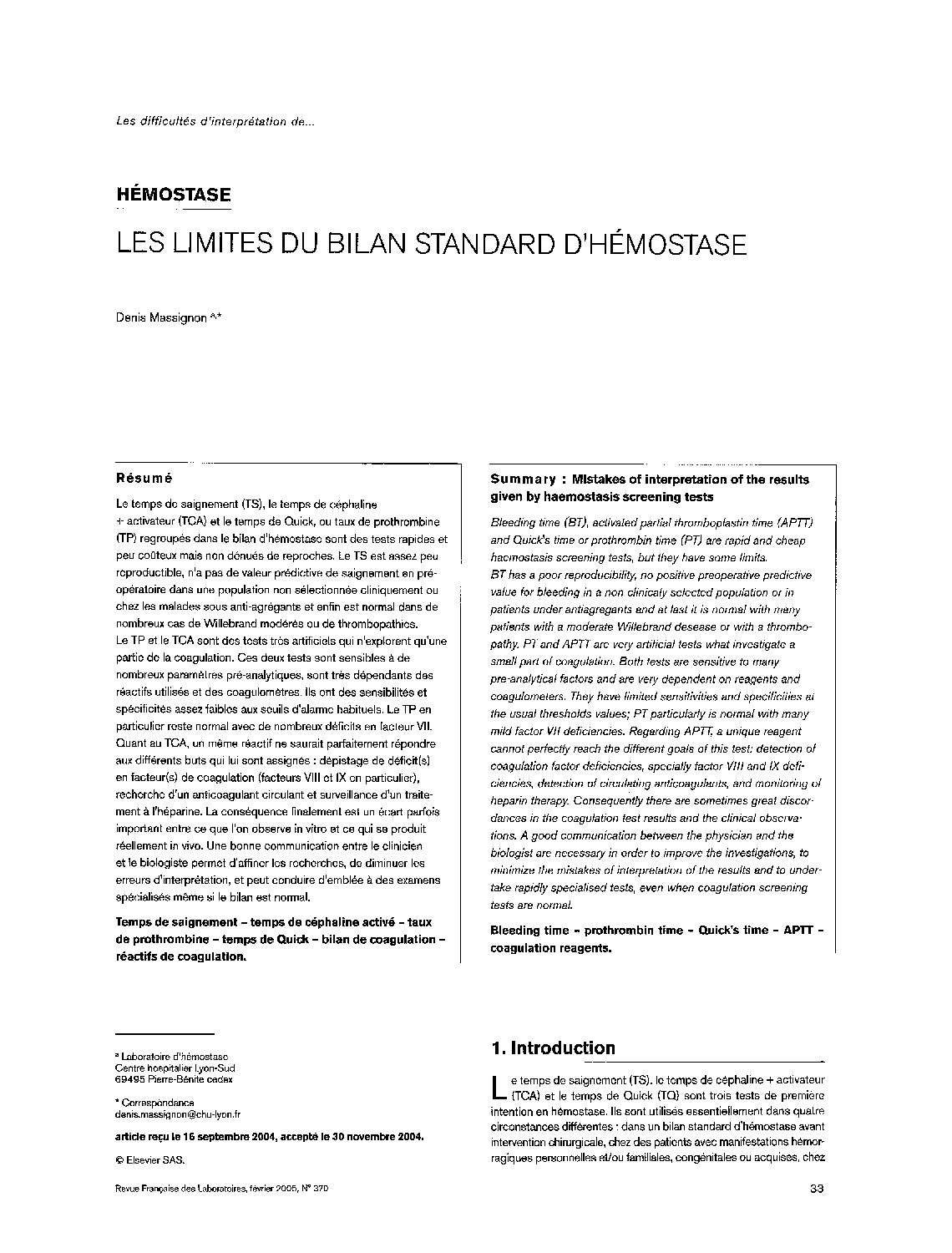| Article ID | Journal | Published Year | Pages | File Type |
|---|---|---|---|---|
| 9755299 | Revue Française des Laboratoires | 2005 | 8 Pages |
Abstract
Bleeding time (BT), activated partial thromboplastin time (APTT) and Quick's time or prothrombin time (PT) are rapid and cheap haemostasis screening tests, but they have some limits. BT has a poor reproducibility, no positive preoperative predictive value for bleeding in a non clinicaly selected population or in patients under antiagregants and at last it is normal with many patients with a moderate Willebrand desease or with a thrombopathy. PT and APTT are very artificial tests what investigate a small part of coagulation. Both tests are sensitive to many pre-analytical factors and are very dependent on reagents and coagulometers. They have limited sensitivities and specificities at the usual thresholds values; PT particularly is normal with many mild factor VII deficiencies. Regarding APTT, a unique reagent cannot perfectly reach the different goals of this test: detection of coagulation factor deficiencies, specially factor VIII and IX deficiencies, detection of circulating anticoagulants, and monitoring of heparin therapy. Consequently there are sometimes great discordances in the coagulation test results and the clinical observations. A good communication between the physician and the biologist are necessary in order to improve the investigations, to minimize the mistakes of interpretation of the results and to undertake rapidly specialised tests, even when coagulation screening tests are normal.
Related Topics
Physical Sciences and Engineering
Chemistry
Analytical Chemistry
Authors
Denis Massignon,
